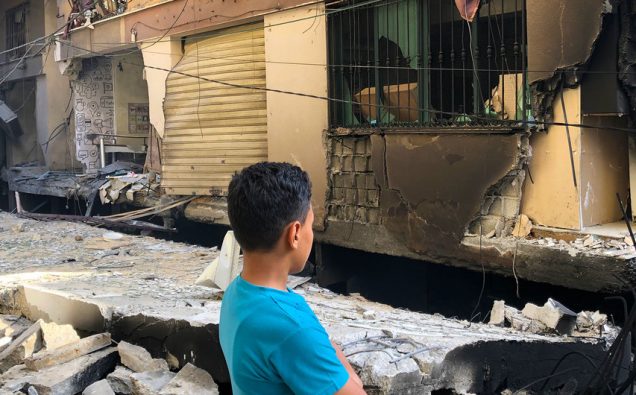
The trauma of living under bombings is worsening for Gaza’s families as one million children go through terrible experiences.
UNICEF says at least 60 children have been killed, and another 444 injured in 10 days of Israeli airstrikes. In addition, 30,000 children have been displaced.
“Gaza’s one million children are reeling from the mounting consequences of violent conflict with nowhere safe to turn. Lives have been lost and families shattered,” Henrietta Fore, UNICEF Executive Director, said in a statement.
Fore’s comments came as the UN Office for the Coordination of Humanitarian Affairs (OCHA) also reported that only five trucks in a 24-vehicle humanitarian convoy had been able to enter southern Gaza through the Kerem Shalom crossing, which Israeli authorities closed only hours after reopening it, blaming militants who they said had launched mortars at it.
On Wednesday, the UN relief agency for Palestine refugees (UNRWA) launched a flash appeal for $38 million, to deal with the spiraling humanitarian crisis.
“I am shocked by the number of civilian lives already lost and infrastructure already destroyed in Gaza,” the UNRWA Commissioner-General, Philippe Lazzarini said.
“I am just as shocked at the excessive use of force at demonstrators in the West Bank, including East Jerusalem. UNRWA has immediately stepped up an emergency humanitarian response and needs financial support to scale it up to the level of acute needs of the impacted populations.”
In response to the rising humanitarian needs brought about by the escalation of conflict in the Gaza Strip, the World Food Programme Monday began providing emergency assistance to support families, amid fears of low food stocks and rising prices.
The WFP says its cash support is working alongside partners, will benefit more than 51,000 people in northern Gaza.
As humanitarian needs increase in Gaza amid ongoing violence, @WFP is providing immediate assistance to 50,000+ people through electronic food vouchers. https://t.co/IZfRLdMGX1
— United Nations (@UN) May 17, 2021
“For people who have lost or fled their homes, one of the most pressing needs at the moment is food”, said Samer AbdelJaber. WFP Representative and Country Director in Palestine.
“The quickest and most effective way we can provide support is with cash, in the form of e-vouchers. Food is available for the time being and many local shops are still open, including those we have already contracted for our regular e-voucher support.”
The WFP warned that the closure of crossings from Israel could soon lead to a scarcity in commodities, including food, and also cause food prices to rise.
UNICEF says an estimated 250,000 children need mental health and protection services, she continued, while at least four health facilities and 40 schools have been damaged in Gaza since weeks of tensions escalated into Palestinian rocket fire into Israel and Israeli airstrikes.
Electricity provision across Gaza “has dropped by roughly 60 percent, leaving hospitals increasingly dependent on generators” to provide essential healthcare services.
“These generators require significant amounts of fuel to function,” Ms. Fore said, adding that any reduction in health care capacity could also jeopardize treatment for those with COVID-19”.
Some 48 schools – most of them run by UNRWA – are being used as emergency shelters for families seeking refuge from the violence, the UNICEF top official noted.
“Each and every day the conflict continues, children across the State of Palestine and Israel will suffer,” she said. “These children need a ceasefire now, as well as a long-term political solution to the broader conflict. They deserve far better than this horrible cycle of violence and fear that has gone on for far too long.”
UNRWA’s flash appeal for $38 million is aimed at covering the most urgent needs of Gazans and those living on the West Bank, as the violence continues.

















